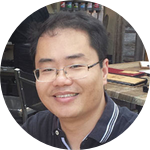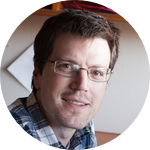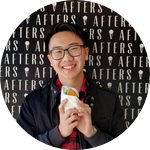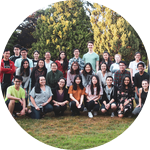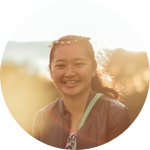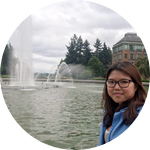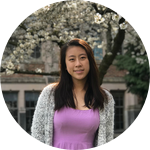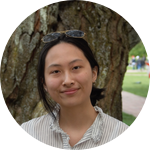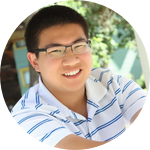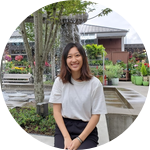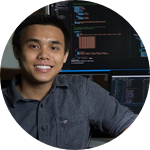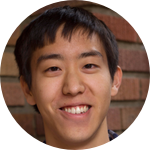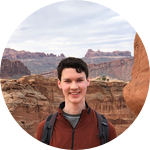About This Project
Chemically induced dimerization (CID) is the process of protein dimerization in the presence of a small molecule. CID allows for highly specific molecule sensing and flexible custom protein design, offering a versatile platform for sensing molecules. However, CID is underutilized in biosensing. We hypothesize that a CID binder-based detection assay can be developed and used to accurately quantify a variety of important small molecules with applications in research, medicine, and more.
Ask the Scientists
Join The DiscussionWhat is the context of this research?
CID has been used to control cell signaling, regulatory / metabolic mechanisms, logic gates for biological computation in mammalian cells. Historically, few naturally-occurring CID systems have been available for therapeutic and research purposes, limiting the usefulness of CID as a biological assay. Recently, a new method has been developed for synthesizing and screening CID components, increasing the feasibility of using CID for biosensing. Extensive nanobody and combinatorial gene libraries allow for the production of CID components for any small molecule. Just being able to find CID components for molecules does not have a direct societal impact, so we are attempting to apply the components to create a biosensor, which could be used to detect molecules related to health.
What is the significance of this project?
Due to advancements in synthesis of CID for finding binders for small molecules, the CID components are extremely customizable compared to those in other biosensors. Our project will benefit the scientific community by creating a generalizable bioengineered tool that can detect the presence of small molecules with a high degree of accuracy and efficiency, especially those which have been hard to detect traditionally. For example, immunogenic and low-molecular-weight compounds are difficult to detect using traditional antibody-antigen based assays, but can be detected readily through CID components. We hope to contribute a new and cost effective way to provide researchers with an accurate tool to detect any small molecule of interest, with potential applications in many fields.
What are the goals of the project?
We are requesting $2,000 in order to successfully achieve our goal of engineering a proof-of-concept CID biosensor. Our proof-of-concept biosensor will utilize Promega’s NanoLuc Binary Technology to create a measurable luminescent signal as a method of detecting small molecules, such as cannabidiol (CBD). By attaching CBD-specific CID proteins to the split luciferase components, luminescence is now linked to the presence of CBD, and we plan to characterize this assay thoroughly. Our business team is focusing on engagement with stakeholders, such as research scientists, to better understand the market for a small molecule detection service and guide us towards creating a meaningful application of our project.
Budget
Contributions will primarily go towards purchasing materials for wet lab procedures, such as biobrick construction, DNA cloning, OCTET assays, and protein purification. Additionally, funds will be used to restock our laboratory, which will ultimately allow us to progress our project. Modeling is also a major component of our project and covering the software expenses involved will allow us to create more accurate and meaningful models. Our team will still be active throughout the year after the competition wrap up, and remaining funds may be used for further work on the project for next year. The funds that are not allocated to either of the three expenses listed above will go towards expanding our educational outreach, collaboration, business, and design sub-teams.
Endorsed by
 Project Timeline
Project Timeline
In July, cannabidiol CID components were mutated to see if their structures aligned with simulation models. In August, initial biosensor vector genes were constructed with Gibson assembly, and mutagenesis results are confirmed with a protein quantification assay called OCTET. This will inform further design improvements. Different CID binding pairs may be used to create varied sensitivity ranges and will be optimized in October. In November, we will present the results at the iGEM Jamboree.
Jul 15, 2019
Begin mutagenesis
Aug 01, 2019
Finish mutagenesis (confirm results with OCTET)
Aug 16, 2019
Start development on biosensor (Gibson assembly of vector)
Aug 30, 2019
Begin characterizing biosensor
Sep 16, 2019
Begin verification tests for biosensor
Meet the Team
Affiliates
Affiliates
Team Bio
Jay Yung
Undergraduate Researcher at the University of Washington
Interested in:
- Small Molecule Detection using chemically induced dimerization systems
- Plant Development and Growth
- Synthetic Biology
Washington iGEM
Washington iGEM is a multidisciplinary group of undergraduate students who run a synthetic biology laboratory and conduct independent research with the help of advisors and professors from the University of Washington. Since 2007, our team has provided undergraduates with a unique and exciting opportunity to participate in cutting-edge research. Some of our previous projects include optimizing enzymes to ameliorate celiac disease and building biological systems to kill anthrax.
Clara Too
As a design major, it's been great to be able to lead the design team for UW iGEM. It's a fast-paced and inspiring environment with many passionate undergrads, and it's been a good way to make friends and learn how to collaborate with students of varied backgrounds and skill sets.
Chi Truong
I am a rising junior at the University of Washington, majoring in Biochemistry with a minor in Microbiology. I serve as a Fundraising Lead for the Washington iGEM team and am a member of the simulation team. Being a Fundraising lead helps me to improve my leadership and collaborations skills. Besides, I learn to use Monte Carlo simulation to predict protein structures.
Joanne Wong
Throughout my time at the University of Washington, iGEM has provided me with the opportunity to pursue my interest in synthetic biology outside my academics. Working with a variety of undergraduate students from diverse backgrounds, I've learned a lot about cutting edge technology and how it can help the world.
Anastasia Nicolov
A native of Seattle, I completed a B.S in Bioengineering and a B.M in Violin Performance at the University of Washington in 2017. I currently work as a bioreactor scientist at Just Biotherapeutics working on optimization of protein drug production.
I am an advisor for both the SoundBio iGEM team and the Washington iGEM team, facilitating training, coaching students on engineering design, and helping manage administrative and fundraising efforts.
Outside of iGEM, I am also an avid performer in local orchestras and chamber groups. In my limited spare time, I enjoy running my Etsy jewelry business and traveling with my family.
Simran Sidhu
My name is Simran Sidhu and I am a rising sophomore at the University of Washington. I joined iGEM because I wanted to gain experience in a research setting and synthetic biology was so innovative. Instead, I got the opportunity to be a part of something much greater! I met industry leaders who inspired me, created curriculum and held outreach events to inspire others. I found a community of people who pushed intellectual and cultural boundaries for the advancement of synthetic biology and (most importantly) global change.
Hannah Cheung
My name is Hannah Cheung and I am a rising junior at the University of Washington, double majoring in Statistics: Data Science and Computer Science.
I have always been fascinated with the intersection of science and technology. iGEM allows me to explore the crossroads and engage with individuals in both of these two fields, while also encouraging ventures to connect with the public.
Jerry Cao
My name is Jerry Cao and I am a rising sophomore at the University of Washington, majoring in Computer Science.
I'm interested in the intersection between healthcare and computer science and iGEM gives me the opportunity to explore this area through a structured program that encourages collaboration between these two fields.
Grace Soah-Yeon Kim
My name is Grace Kim and I am a rising junior in bioengineering. I am interested in the field of immunotherapy, oncology, drug delivery, and synthetic biology. iGEM is unique as it allows an interdisciplinary team, bringing multiple perspectives and ideas, to work towards a common goal.
William Kwok
I am a full stack developer and incoming fourth-year undergraduate student at the University of Washington obtaining a degree in Informatics with focus in software engineering (June 2020 graduation). I have experience in building and debugging hardware and programming various applications and tools. I am the lead web developer on Washington iGEM. Previously, I helped design and build a proof of concept portable bio-reactor for the Washington iGEM 2017 project.
Yoshitaka Goto
I am currently the Director of Operations and Lab Manager at SoundBio Lab, and an advisor for the SoundBio iGEM and Washington iGEM teams. A graduate of University of Washington Bioengineering, I was part of the iGEM team there for three years. I am also actively involved in After iGEM initiatives, ran by iGEM Alumni. An avid supporter of iGEM, as well as the fields of synthetic and systems biology, I'm inspired by biotech, and I hope to inspire future biotechnologists!
Karl Anderson
I am an incoming fourth-year student at the University of Washington majoring in Biochemistry and Biology. I'm currently an advisor for Washington iGEM, though I've previously worked on wetlab for two years. iGEM has introduced me to synthetic biology, and inspired me to pursue research after graduation.
Quoc Tran
I am a Junior at the University of Washington majoring in Biochemistry alongside a minor in Real Estate. My current research project with Washington iGEM in developing a biosensor using chemically induced dimerization (CID) system reflects the interests in understanding how protein interactions can be used to create useful innovations. I am curious about how everything works in tandem, not limited to just protein interactions, in creating more practical and effective products that will help people learn more about the complex nature around us.
Joshua Ip
I'm a computer science student in the third year of my studies. As the simulations ambassador, I make sure that the wetlab and the simulations team work with each other to develop the project as quickly as possible. iGEM lets me use my computer science knowledge in a way that advances the bounds of biological science.
Ed van Bruggen
I am a Junior at the University of Washington pursuing a major in Physics and a minor in Applied Math. This year I am helping to lead the simulations team working to mathematically model the experiments the wetlab are preforming in order to optimize and better understand their findings.
Additional Information
This year, our interdisciplinary team consists of 50 active members including leadership members and advisors, ranging from freshman to seniors, with a variety of majors such as Biochemistry, Electrical Engineering, Business, Design, and Bioengineering.
Allison Lee (Junior, Informatics)
Aniruddh Saxena (Sophomore, Biochemistry)
Angie Dang (Senior, Biochemistry)
Brian Hong (Freshman, Electrical Engineering)
Chemay Shola (Sophomore, Bioengineering)
Chengxing Li (Sophomore, Biochemistry)
Delaney Wilde (Freshman, Bioengineering)
Elgene Quitevis (Senior, Biochemistry)
Eric Yeh (Freshman, Computer Science)
Ethan Silvia (Freshman, Mathematics)
Juliana Ng (Junior, Biochemistry)
Grace Zou (Freshman, Human Centered Design and Engineering)
Laura Freeman (Junior, Informatics)
Malia Clark (Sophomore, Biochemistry )
Monet Tosch-Berneburg (Freshman, Biochemistry)
Natalie Murren (Freshman, Biochemistry)
Vera Okolo (Sophomore, Molecular Biology)
Vicky Shih (Freshman, Bioengineering)
Pacy Wu (Freshman, Bioengineering)
Rachael Hu (Senior, Biology)
Shean Fu Phen (Freshman, Bioengineering)
Sijia Zhang (Sophomore, Bioengineering)
Sidney Chan (Junior, Biochemistry)
Tingjia Tao (Freshman, Computer Science)
Tom Chao (Junior, Microbiology)
Vivian Huynh (Sophomore, Electrical Engineering)
William Nguyen (Freshman, Computer Engineering)
Yifan Zhou (Sophomore, Informatics)
Yuanyi Xu (Sophomore, Biochemistry)
Project Backers
- 16Backers
- 26%Funded
- $519Total Donations
- $32.44Average Donation
